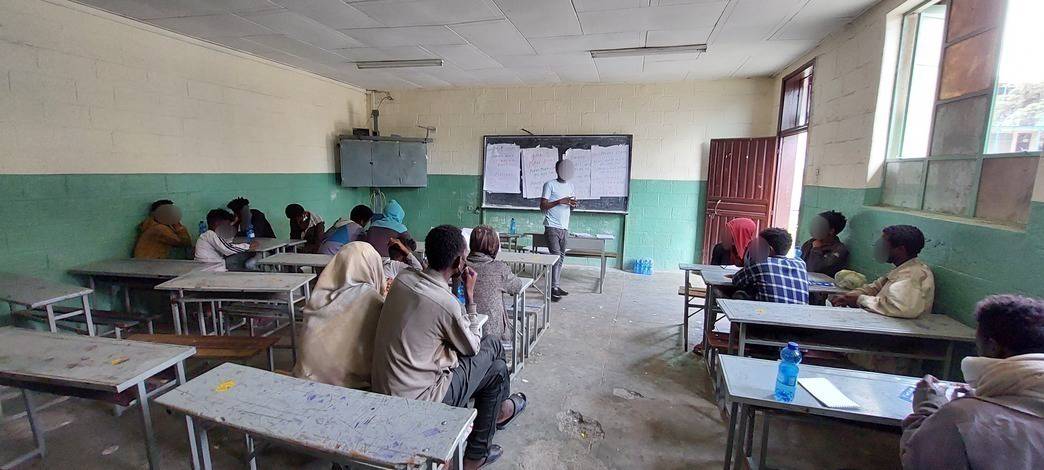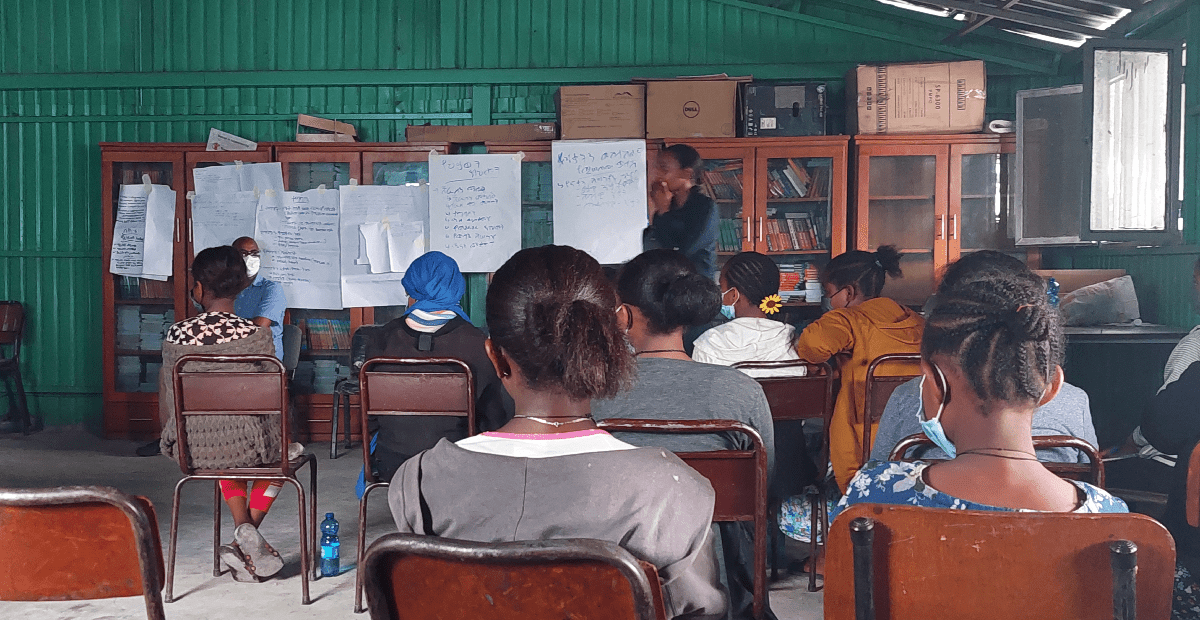Hope for Justice and UNICEF to transform future for vulnerable children in Ethiopia
Hope for Justice has joined forces with UNICEF in Ethiopia, in a ground-breaking move set to reduce the risk of violence, abuse and exploitation of 35,000 of the most vulnerable children, including the urban poor, those living on the streets, and children on the move.
The two organisations will reach children who have been forced into exploitation, those living on the streets, children with disabilities and other vulnerable children and adolescents. Traffickers could target these children, who face risks to their health and wellbeing including sexual violence, child marriage, female genital mutilation, and sexually transmitted infections.
Hope for Justice will provide training to empower the children with confidence, awareness of the risks they may face, and the ability to take care of their health and personal safety. The comprehensive sessions will cover human trafficking, child protection, and sexual and reproductive health. The children will also develop life skills and communication skills.
The ongoing initiative, which has already benefited more than 5,000 children with training to help keep them safe and well, will reach young people in Addis Ababa, Sodo and Bahir Dar, in Hope for Justice’s Lighthouse shelters, as well as schools, information hubs and youth centres.

A child living in the street in Addis Ababa said he had no interest in living until he participated in the life skills training. In his words, he is now curious and eager to live and to start all over again. In a similar vein, a young commercial sex worker said that the life skills training enabled her “to see things differently” and compelled her to think “Yes I can, I am not too late to choose a better path for the future.”
The initiative will also train nearly 1,000 professionals who have an essential role in protecting vulnerable children, including police officers, social workers, healthcare workers, teachers, and government and NGO workers. This training will empower them with the knowledge they need to spot children being exploited, abused, or at risk, and ensure they know how to respond.
UNICEF believes that strengthening the social service workforce in this way contributes to strengthening the country’s child protection system. Importantly, it also adds value to Ethiopia’s Urban Productive Safety Net Programme, which provides comprehensive services to destitute urban populations, including children in street situations, and leads to the successful reintegration of children into family settings.
Hope for Justice will also work together with UNICEF to promote the delivery of case management services using the National Child Protection Case Management Framework, to ensure that children and adolescents are receiving the best possible protection and care.
Dereje Zeleke, Ethiopia Country Programmes Director at Hope for Justice, said: “We are delighted to be rolling out this partnership, which we believe will bring about a genuine sea change for the most vulnerable children in Ethiopia.
“We’re incredibly proud to be working together with UNICEF to carry out this vital work, which will safeguard the health and wellbeing of many thousands of young people, and in turn reduce their risk of exploitation.
“Together, we are approaching the challenge of securing children’s futures by working closely with vulnerable children, including those who are victims of trafficking themselves, and by upskilling a wide range of professionals that come into contact with them. This incredibly exciting project will take great strides towards stamping out modern slavery and allowing children in Ethiopia to lead healthy, happy lives.”

